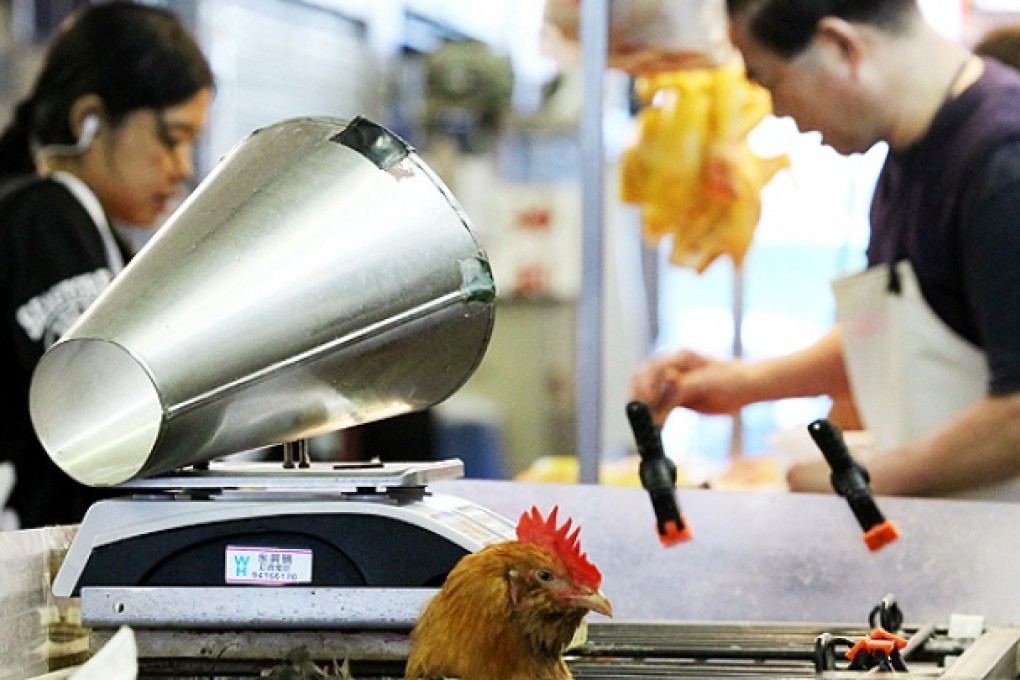H7N9 bird flu found to spread through the air
Virus can also infect pigs, say HKU researchers, who warn officials to maintain tight scrutiny even though threat seems under control

The H7N9 bird flu virus can be transmitted not only through close contact but by airborne exposure, a team at the University of Hong Kong found after extensive laboratory experiments.

"We also found that the virus can infect pigs, which was not previously known," said Dr Maria Zhu Huachen, a research assistant professor at HKU's School of Public Health.
There have been 131 confirmed human infections, with 36 deaths, the World Health Organisation said. All but one of the cases was on the mainland. The virus appears to have been brought under control largely due to restrictions at bird markets and there have been no new confirmed cases since May 8.
But Zhu said that although there was no evidence of sustained human-to-human transmission, their study provided evidence that H7N9 was infectious and transmissible in mammals.